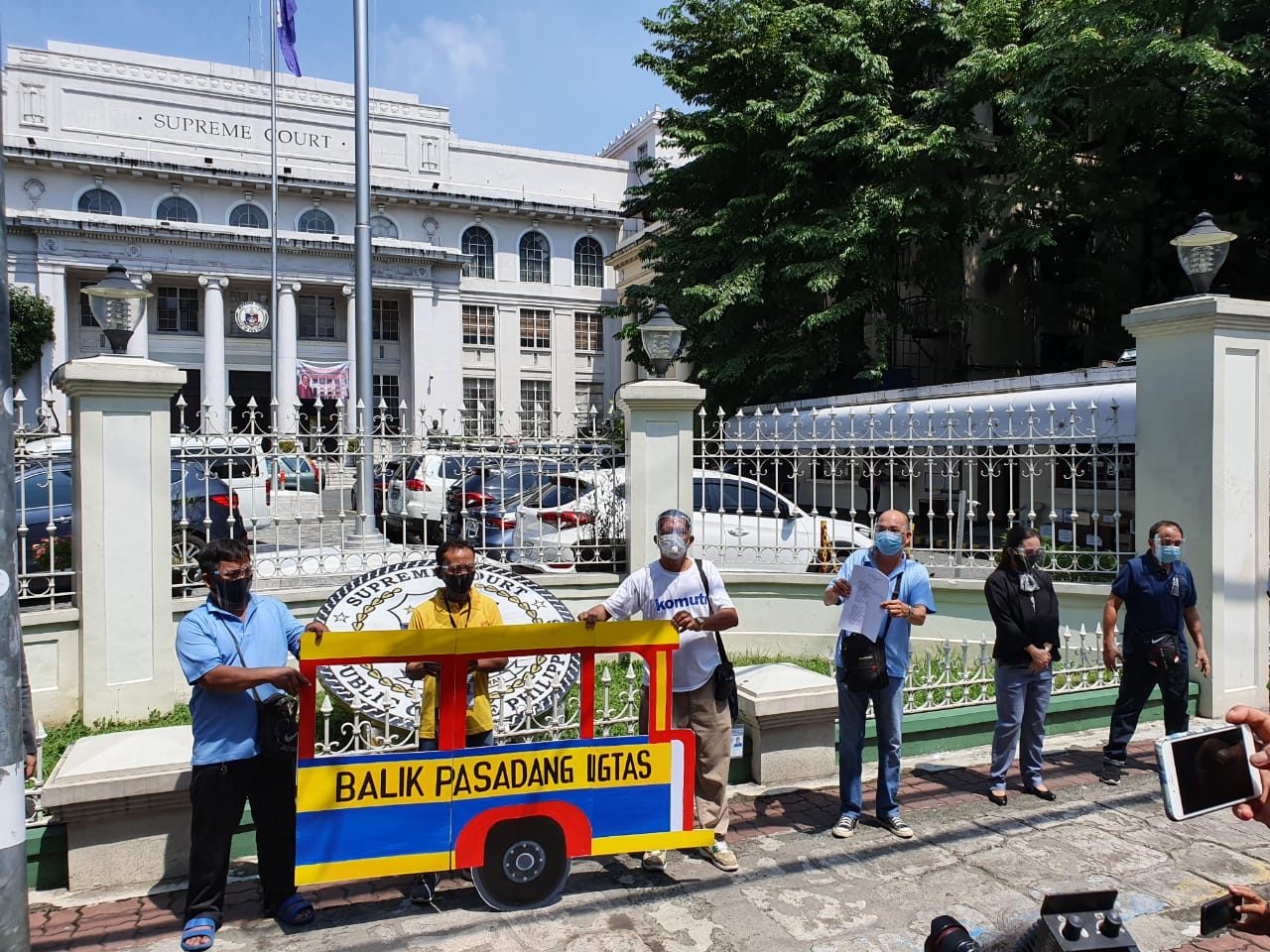SUMMARY
This is AI generated summarization, which may have errors. For context, always refer to the full article.

Two new petitions were filed challenging the Supreme Court to rule – or at least tackle – the constitutionality of the Duterte government’s coronavirus pandemic response.
The first petition, filed September 14, was from a senior citizen who invoked equal protection against the tighter restriction imposed on 60-year-olds and above by the government.
The 2nd petition was filed Tuesday, September 29, by a group of jeepney drivers who also invoked equal protection questioning why there was a preference for modernized jeepneys in the gradual return of public transport.
Both petitions also questioned the authority of the all-powerful Inter-Agency Task Force (IATF) to pass mandatory policies.
Two petitions questioning the government’s pandemic response have failed before – the petition which questioned the constitutionality of the Bayanihan Law, or President Rodrigo Duterte’s emergency pandemic powers, and the petition seeking to compel the government to conduct mass testing.
Both were outrightly dismissed, meaning there were no full deliberations and the Duterte government did not even have to answer the petitions.
The latest two new petitions would put to test whether other approaches to constitutional litigation would work.
The Duterte government has been criticized over confusing policies, some of which they had to retract, issued by both the IATF or the president himself.
Jeepney drivers’ plea
The jeepney drivers’ plea is largely questioning the IATF’s authority, saying that the task force’s policies amounted to legislations which only Congress could do.
“The Inter-Agency Task Force on Emerging Infectious Diseases (IATF-EID) cannot hide behind the shield of the police power of the State in imposing quarantine measures that forbade PUVs from operating. The Congress did not delegate to it any police power, let alone quasi-legislative powers that could make it a ‘policy-making body,'” said the 65-page Petition for Certiorati and Prohibition prepared by the group Initiative for Dialogue and Empowerment through Alternative Legal Services or IDEALS.
The petition sought to void all the circulars issued by the Land Transportation Franchising and Regulatory Board (LTFRB) thus far.
Only around 17,000 jeepneys out of the estimated 55,000 have been allowed to ply Metro Manila roads since July when the LTRB partially lowered restrictions.
The petition also sought to void IATF’s Omnibus Guidelines, from which the LTFRB based its circulars on, saying the guidelines “violated the principle of separation of powers and the right to work, and the right to have an adequate standard of living.”
Senior citizen’s plea
The Senior Citizens’ plea, filed by Eugenio Insigne, invoked a menu of rights – such as the rights to travel and of self-determination – in arguing that there was no sufficient legal basis to arbitrarily impose tighter restrictions on 60-year-olds and above without empirical scientific data.
The government imposed tighter restrictions on the over 60-year-olds, classifying them as more vulnerable.
This petition was more overarching in that it argued before the Supreme Court that the quarantine itself – or the IATF’s Omnibus Guideline – was unconstitutional for not following the procedural requirements of the International Covenant on Civil and Political Rights (ICCPR), which the Philippines is a party to.
“The ICCPR…requires that State parties provide careful justification not only for their decision to proclaim a state of emergency but also for any specific measures based on such a proclamation…The Philippines has not complied with this procedural act,” said the petition.
Insigne filed what is called a petition for declaratory relief even though the Supreme Court has no jurisdiction over declaratory reliefs. Insigne asked the Supreme Court to issue injunctions against the IATF’s Omnibus Guidelines.
The earlier challenge to Bayanihan Law also questioned the IATF saying the task force “has no power to define the law on quarantine.”
But the Supreme Court denied the petition outright.
Dissenters on the bench have expressed their apprehensions over the Supreme Court’s recent outright dismissals, saying in the mass testing decision that issues like this need a full-blown discussion at least.
During pandemic, the Supreme Court favored Duterte thrice now – all via outright dismissals – while it made other petitioners wait. – Rappler.com
Add a comment
How does this make you feel?


![[Time Trowel] Evolution and the sneakiness of COVID](https://www.rappler.com/tachyon/2024/02/tl-evolution-covid.jpg?resize=257%2C257&crop=455px%2C0px%2C1080px%2C1080px)


There are no comments yet. Add your comment to start the conversation.